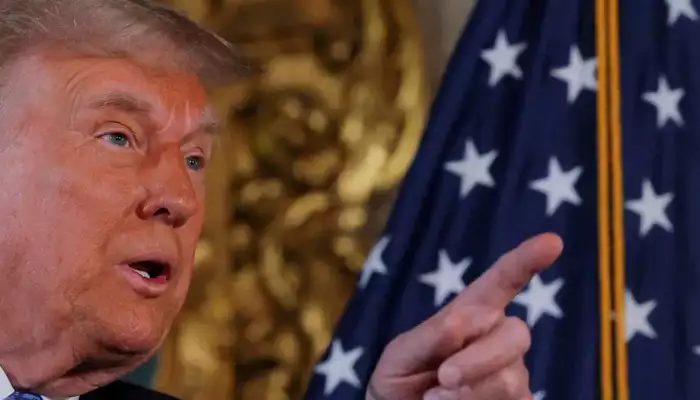
The Republican-led House of Representatives rejected Donald Trump's new plan on Thursday to fund federal operations and avert a government shutdown.
A total of 38 Republican lawmakers voted against the package, even though they were under pressure to approve the new plan.
The package would increase spending and clear the way for a plan that would add trillions more to the federal government's $36 trillion (€34.74 trillion) in debt.
Congress now has until Friday night to come up with another plan that both Republicans and Democrats agree on.
A shutdown is slated to begin at 12:01 a.m. Saturday.
Trump and Musk sink previous plan
A bipartisan spending plan was rejected by Trump and key ally Elon Musk on Wednesday.
Republicans were then left scrambling with the task of coming up with a replacement plan to avert a shutdown ahead of Friday's deadline.
Trump earlier Thursday said he backed the replacement plan that would suspend the debt ceiling — which is the maximum the federal government can borrow to pay for its spending — for two years.
House Democrats had made known they were going to vote against the bill, with House Minority Leader Hakeem Jeffries calling the plan B "laughable."
Trump touted 'success' of new plan
Trump had earlier in the day called on Congress to avert a shutdown, saying there had been"success" in crafting a new plan to fund the government.
"SUCCESS in Washington! Speaker Mike Johnson and the House have come to a very good Deal for the American People," Trump posted on social media.
But Democrats shot back at the new deal. "The... proposal is not serious, it's laughable. Extreme MAGA Republicans are driving us to a government shutdown," Jeffries said before the vote.
Republicans currently control the House with a slim 219-211 majority.
Musk and Trump apply pressure
Republicans and Democratic leaders had reached a compromise on a so-called stopgap bill, which is known as a "continuing resolution," to keep the government funded through mid-March 2025.
But Trump's billionaire donor Elon Musk attacked the bill on X, the social media platform he owns, amplifying criticisms over numerous costly provisions that were on the bill.
Later, Trump himself attacked the deal and threatened the reelection prospects of Republicans thinking of supporting it. The president-elect also demanding that the bill increase or even rid the country of its debt limit.